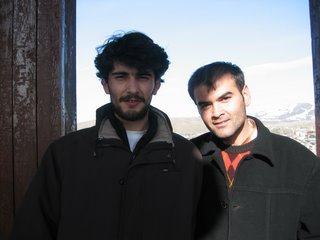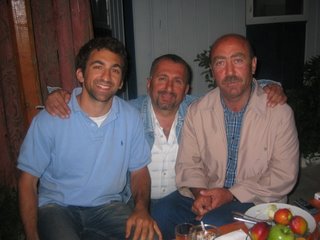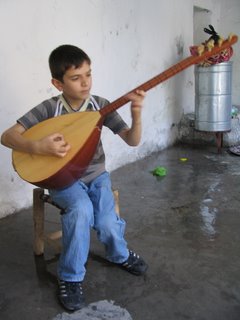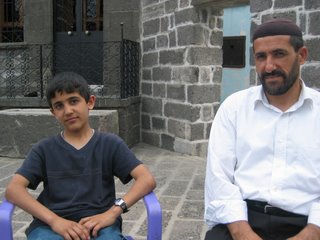Turkish Hospitality (tea?)
I just received a knock on my hotel room door from one of the men who worked there, wanting to know if I would like any tea or coffee. This is not unusual in Turkey, where showing hospitality seems to be perceived as a privilege and not doing so is unthinkable.

Because of Turkish hospitality, I have had the opportunity to meet and speak with many people, from a Syrian priest in Diyarbakır, to a middle-aged woman near Kaş who looks after her 26 year-old mentally-handicapped son, a ceramics maker in İstanbul just embarking on his career, and a radiologist in Van who spent three days looking after myself and a friend. Anyone and everyone is willing to sit you down and make you some tea for no motive other than that you are a guest.

I’ve had to put aside my skepticism and fear that comes with such treatment. Indeed, I feel that we in the United States can prize our individualism to a fault. By doing everything ourselves, we lose the vulnerability and indebtedness that comes with putting ourselves in someone else’s care. And by being too busy to give our time to guests and strangers, we close off avenues of connections with others.
These connections have made my time in Turkey a more rich and memorable experience. Furthermore, it has shown me that perhaps nothing is more important than other people, and that to welcome others unconditionally is to acknowledge that every person has the capacity to both give and receive, to provide and to need, regardless of one’s station in life.

It would be impossible for me to have successfully completed my project and lived such a full year without the hospitality of hundreds of people. Several people stick out in my mind and though they will likely never read this blog, I would like to acknowledge them: Orhun in Konya, Burçin and Mert in Erzurum, Nadir in Van, the Zoral family and Sidika in İzmir, the automotive man in Nevşehir, the bus company in Batman, the students on the dolmuş in Hasankeyf, Şadullah in Istanbul, Engin Bey and İbrahim Bey in Van, Özgül and Mine at ARI Movement, Hakan in Ankara, Harika in Van, and the hundreds of people who have given me directions or gone out of their way to show me where to go.

Because of Turkish hospitality, I have had the opportunity to meet and speak with many people, from a Syrian priest in Diyarbakır, to a middle-aged woman near Kaş who looks after her 26 year-old mentally-handicapped son, a ceramics maker in İstanbul just embarking on his career, and a radiologist in Van who spent three days looking after myself and a friend. Anyone and everyone is willing to sit you down and make you some tea for no motive other than that you are a guest.

I’ve had to put aside my skepticism and fear that comes with such treatment. Indeed, I feel that we in the United States can prize our individualism to a fault. By doing everything ourselves, we lose the vulnerability and indebtedness that comes with putting ourselves in someone else’s care. And by being too busy to give our time to guests and strangers, we close off avenues of connections with others.
These connections have made my time in Turkey a more rich and memorable experience. Furthermore, it has shown me that perhaps nothing is more important than other people, and that to welcome others unconditionally is to acknowledge that every person has the capacity to both give and receive, to provide and to need, regardless of one’s station in life.

It would be impossible for me to have successfully completed my project and lived such a full year without the hospitality of hundreds of people. Several people stick out in my mind and though they will likely never read this blog, I would like to acknowledge them: Orhun in Konya, Burçin and Mert in Erzurum, Nadir in Van, the Zoral family and Sidika in İzmir, the automotive man in Nevşehir, the bus company in Batman, the students on the dolmuş in Hasankeyf, Şadullah in Istanbul, Engin Bey and İbrahim Bey in Van, Özgül and Mine at ARI Movement, Hakan in Ankara, Harika in Van, and the hundreds of people who have given me directions or gone out of their way to show me where to go.



